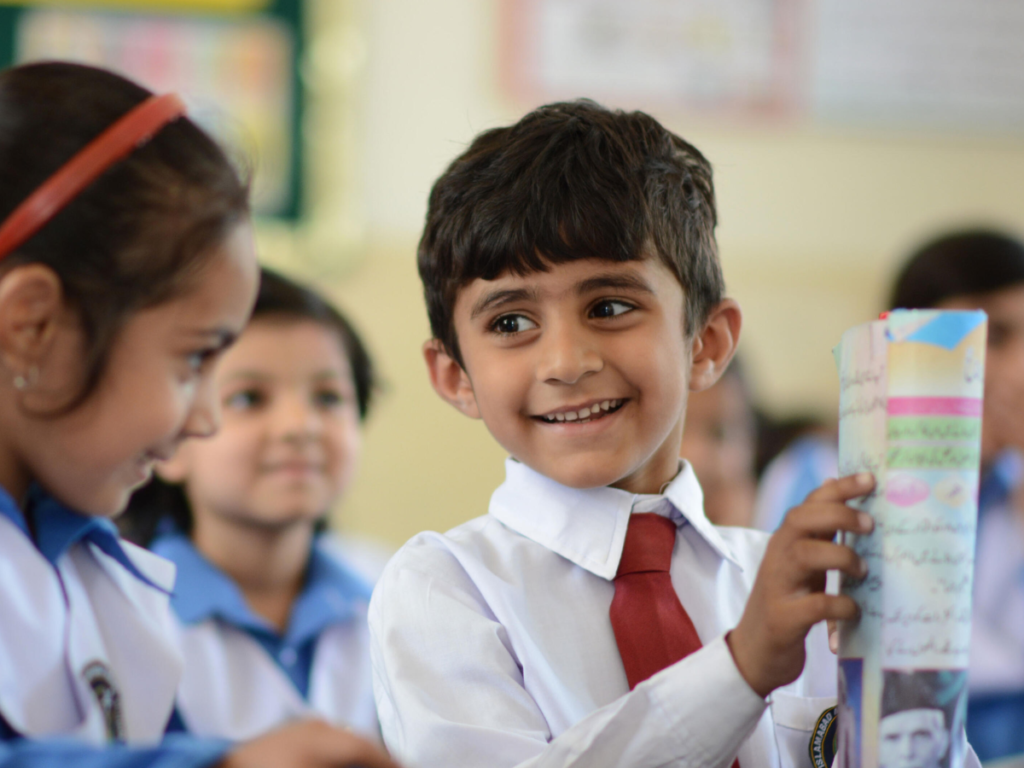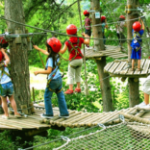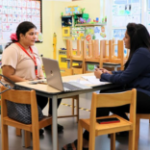
Early childhood education (ECE) is foundational in shaping children’s development and preparing them for future academic and life success. At AR Tiny Tots International School in Pimpri-Chinchwad, Pune, where Academic Excellence, Outstanding coaching for Sports, Best Infrastructure, Personal Attention, and Holistic Development are prioritized, we recognize the critical importance of early learning experiences in nurturing young minds. This blog explores in-depth the significant benefits of ECE, highlighting its multifaceted impact on cognitive, social, emotional, academic, and physical development.
Cognitive Development
1. Development of Essential Skills
Early childhood education fosters the development of fundamental cognitive skills that form the basis for academic achievement. Through age-appropriate activities, children engage in language development, literacy skills, numeracy concepts, and problem-solving abilities. Interactive learning experiences, such as educational games and exploration activities, stimulate cognitive growth and encourage curiosity and exploration.
2. Stimulating Curiosity and Creativity
ECE environments provide opportunities for children to explore their interests and express their creativity. Creative activities such as art, music, dramatic play, and storytelling encourage imaginative thinking and innovation. These experiences not only enhance cognitive flexibility but also lay the foundation for lifelong creativity and a positive attitude towards learning.
3. Critical Thinking and Problem-Solving
Engaging in early childhood education promotes critical thinking and problem-solving skills essential for academic success and lifelong learning. Activities that challenge children to analyze, evaluate, and apply knowledge encourage cognitive development and enhance their ability to think independently and solve complex problems. These skills are crucial for academic achievement across all subjects and future career readiness.
Social and Emotional Development
4. Building Social Skills
Participating in early childhood education settings allows children to interact with peers and develop crucial social skills. Through collaborative play, group activities, and structured routines, children learn to communicate effectively, cooperate with others, and develop empathy and respect. These social interactions foster friendships and lay the groundwork for positive social behaviors and relationships.
5. Emotional Regulation and Resilience
ECE programs support the development of emotional intelligence by providing a nurturing environment where children learn to recognize and manage their emotions. Teachers and caregivers model positive behaviors and teach coping strategies that help children navigate challenges and transitions effectively. Learning emotional regulation promotes resilience, self-confidence, and the ability to adapt to new situations.
6. Empathy and Social Awareness
Early childhood education promotes empathy and social awareness by exposing children to diverse perspectives, cultures, and experiences. Activities that encourage cooperation, teamwork, and conflict resolution foster empathy and respect for others’ feelings and viewpoints. Developing these interpersonal skills prepares children to build positive relationships, collaborate effectively, and contribute positively to their communities.
Academic Preparation
7. Preparation for School Readiness
Early childhood education prepares children for the academic demands of formal schooling by introducing basic academic concepts in a structured and supportive environment. Activities that promote early literacy, numeracy, and scientific exploration build a strong foundation for future academic success. ECE programs also focus on developing skills such as listening, following instructions, and participating in classroom routines, which are essential for school readiness.
8. Language and Communication Skills
ECE environments play a crucial role in language development and communication skills. Through conversations, storytelling, vocabulary-building activities, and interactions with peers and adults, children expand their language proficiency and enhance their ability to express themselves effectively. Strong language skills are essential for literacy development and academic achievement across all subjects.
Health and Well-being
9. Promoting Physical Health
Early childhood education emphasizes the importance of physical activity, healthy nutrition, and overall well-being. Outdoor play, structured movement activities, and age-appropriate exercises promote physical development, gross motor skills, and coordination. Encouraging healthy habits from a young age sets the foundation for a lifetime of physical health and wellness.
10. Encouraging Positive Habits and Self-care
ECE programs teach children essential life skills and habits that promote independence, responsibility, and self-care. Activities such as personal hygiene routines, sharing, and respecting others’ belongings foster a sense of personal responsibility and positive social behaviors. Teachers play a critical role in modeling and reinforcing these habits, supporting children’s overall development and well-being.
Parental Involvement and Community Engagement
11. Building Partnerships with Families
Early childhood education values the partnership between educators, families, and the community in supporting children’s development. Establishing open communication, involving parents in their child’s learning journey, and sharing resources and strategies promote consistency between home and school environments. Parental involvement strengthens educational outcomes, enhances children’s learning experiences, and fosters a supportive network for children’s growth and development.
12. Community Engagement and Collaboration
ECE programs engage with the broader community to enrich children’s learning experiences and promote community involvement. Collaborating with local organizations, hosting community events, and integrating community resources into the curriculum enhance children’s understanding of social responsibility, cultural diversity, and global citizenship. Community partnerships broaden children’s perspectives and provide valuable opportunities for experiential learning beyond the classroom.
Summary
Early childhood education at AR Tiny Tots International School provides a nurturing foundation that supports children’s holistic development across cognitive, social, emotional, academic, and physical domains. By stimulating curiosity, fostering social and emotional skills, preparing for academic success, promoting physical health, encouraging positive habits and self-care, and building partnerships with families and the community, ECE plays a crucial role in laying the groundwork for lifelong learning and personal growth. Embracing a comprehensive approach to education, our school values the transformative impact of early childhood experiences in shaping confident, capable, and well-rounded individuals ready to thrive in an ever-changing world.




